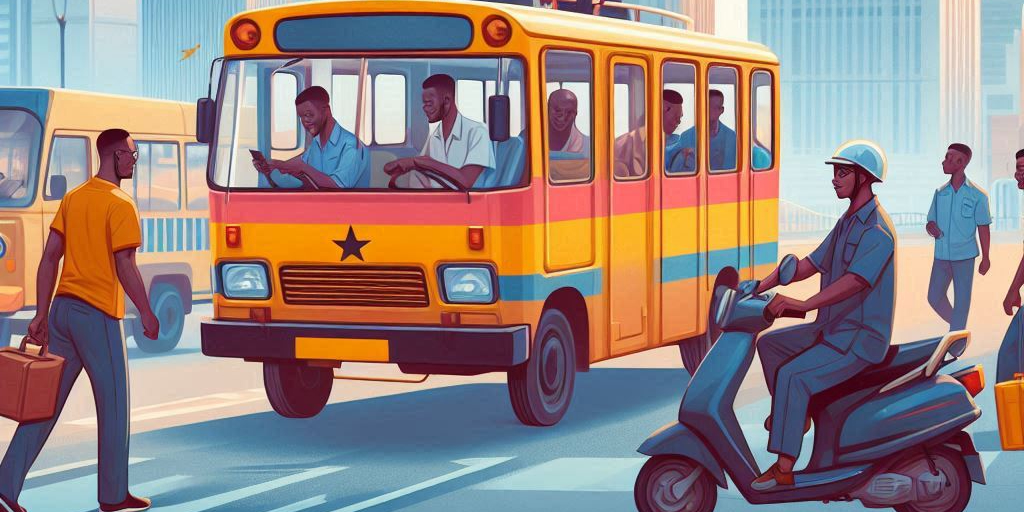In line with Dr. Bawumia’s vision, transport and logistics sector workers will benefit from modernized infrastructure, enhanced digital systems, and improved working conditions. His focus on expanding and upgrading road networks, ports, and rail systems will make transportation more efficient, reducing delays and operational costs for workers in the sector. The integration of digital technologies, such as GPS tracking, automated logistics systems, and digital payment platforms, will streamline operations, allowing workers to manage shipments and transport services more effectively. Dr. Bawumia’s vision also includes policies aimed at improving the safety and welfare of transport workers, including better vehicle maintenance systems, stricter road safety measures, and more comprehensive training programs. These advancements will lead to a more efficient, safer, and rewarding working environment for those in the transport and logistics sector, while boosting Ghana’s capacity as a regional trade hub.
Top 5 Frequently Asked Questions
Question 1: How will the expansion of Electric Vehicle (EV) transportation systems benefit transport workers and commuters?
Answer: The expansion of Electric Vehicle (EV) transportation systems will have multiple benefits. For transport workers, this will create new jobs in the EV supply chain, including maintenance, repairs, and operations. For commuters, EVs will lower the cost of public transport in the long run, as they are more energy-efficient and environmentally friendly. Additionally, by reducing reliance on fossil fuels, EVs help stabilize transportation costs and promote a cleaner environment for all.
Question 2 What strategies will be put in place to stabilize the prices of spare parts, and how will this reduce public transportation costs?
Answer: Bawumia’s government will work on stabilizing the prices of spare parts by incentivizing local production and through the Gold for Oil Program, which will stabilize fuel prices, indirectly impacting transportation costs. Additionally, tax incentives and reduced import duties on EV parts will further lower the cost of maintaining public transportation vehicles, leading to reduced transportation fares for commuters.
Question 3: How will the transportation system be made more accessible for Persons with Disabilities (PWDs)?
Answer: The policy focuses on making public transportation more accessible for PWDs by mandating that all future public transportation infrastructure includes accessibility features such as ramps, lifts, and designated seating areas for persons with disabilities. This ensures that PWDs have equal access to safe, efficient, and affordable transport options.
Question 4: What improvements will be made to the inter-city and intra-city bus systems under this policy?
Answer: Bawumia’s policy will expand inter-city and intra-city bus systems by increasing the number of buses, upgrading fleets to include EVs, and improving route planning. The introduction of digital payment solutions will simplify fare collection, making public transport more convenient for both workers and commuters. Better route mapping will also reduce congestion and ensure buses run on time.
Question 5: What steps will be taken to ensure the fuel supply chain operates more efficiently, and how will this impact the transport sector?
Answer: The policy aims to improve the transportation of petroleum products by enhancing the efficiency of the fuel supply chain. This will involve digitizing fuel distribution, optimizing logistics routes, and implementing real-time monitoring to reduce delays and losses. A more efficient fuel supply chain will lower operational costs for transport businesses, ensure consistent fuel availability, and prevent disruptions in transportation services, thereby improving overall sector performance.





